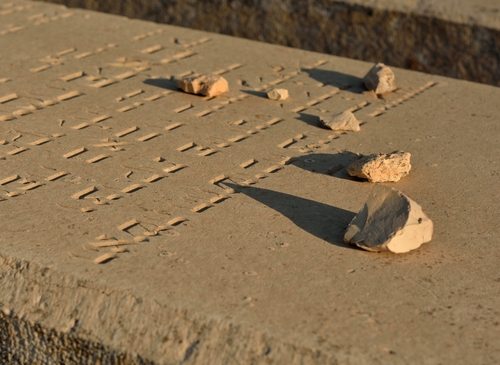
Shiva: A Guide for Non-Jews
Fox Monuments, being a provider of Jewish memorials and headstones, naturally explores Jewish customs in our posts. Judaism is rich with history and cultural significance. Jewish practices concerning death and mourning are varied and unique. And Fox Monuments has paid tribute to Long Island’s Jewish community for decades.
However, many non-Jewish mourners can often feel perplexed by the traditions of Jewish memorials. Naturally, they can sometimes be intimidating to navigate when you’re not sure how to proceed.
Below, we’ve posted a guide to sitting Shiva for non-Jewish mourners. If a Jewish friend or family member has passed away and you wish to pay respects, this can be very helpful information.
1. What is Sitting Shiva?
Shiva is a practice of Jewish mourning that lasts for seven days. It begins on the day of a Jewish funeral or burial. However, these days, most Shivas tend to last about three days.
Essentially, this is a structured mourning period. It allows the bereaved family a designated time and space to receive fellow mourners and process their grief. It is a way to help the bereaved move through the stages of mourning. Usually, Shiva is announced at the funeral service.
2. Customs, Ritual & Protocol
Shiva takes place within the home of the spouse, parent, sibling or husband of the deceased. And, while Shiva is a Jewish event, non-Jews are welcome to attend. During Shiva, the community will visit the grieving family to pay their respects.
Basically, prior to actually visiting the home, it’s customary to make a call. Essentially, the purpose of this call is to remind the family that they’re not alone. During this call, it’s important for you to listen, be compassionate and supportive. Clearly, this is an obvious instinct for anyone consoling a bereaved friend or family member.
First, when you arrive at the home sitting Shiva, you’re encouraged to walk right in. During the Shiva period, the family’s home is open to all who are willing to pay their respects. Essentially, everyone is welcome.
As the visitor, your purpose is to honor the grief of the bereaved. In other words, you’re encouraged to play a role of unconditional support and to be a comforting presence. Many religions or cultures encourage mourners to hide their grief. However, Jewish culture is unique in that it promotes the open sharing of communal grief. Shiva is a crucial aspect of this shared mourning.
3. The Shiva Policies
There are certain rituals, practices and policies to adhere to during Shiva. Naturally, this may vary depending on the family in question. Nonetheless, it’s best to be aware of the general Shiva policies when visiting a home.
Many non-Jews aren’t aware that discussing the manner of death is highly inadvisable. Basically, this is universally discouraged. Don’t bring up how the person died, unless the family wishes to discuss it voluntarily.
Most Shiva homes will place a guest book in a communal area for guest to sign. It’s considered polite for all visitors to sign this book. Essentially, you want to leave notes of support and consolation for the bereaved. Keep an eye out for this book and be sure to sign it.
Accordingly, it’s important to not have solid expectations for the atmosphere of the Shiva. Every Shiva feels different. In many cases, whether it’s a family member’s first or seventh Shiva, each one can feel like the first. Remember: your purpose is to be a shoulder to cry on and to console.
Conclusion
At Fox Monuments, we hold Jewish customs and practices in the highest respect. We take enormous pride in helping the Jewish community create fitting memorials to pay tribute to their loved ones.
© 2024 Fox Memorials
Web Design & Development by Logic Web Media
